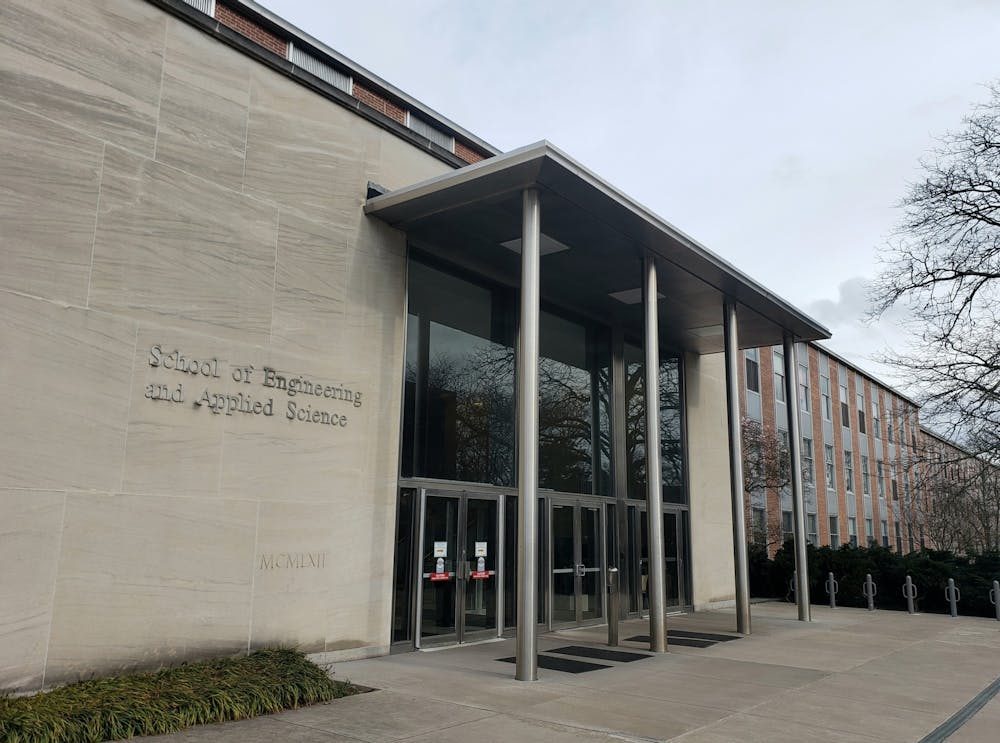The evidence abounds: language learning is one of the most fruitful academic pursuits. Not only does learning a second language yield a host of cognitive benefits, but it also supports academic achievement across subjects. Beyond academics, knowledge of a second language increases earning potential — even in STEM professions.
However, despite the clear benefits of language learning, the state of non-English language acquisition at U.S. institutions of higher education is precarious. In its most recent report on the subject, the Modern Language Association found that between fall 2013 and 2016, total enrollment in non-English language classes among undergraduate and graduate students in the United States declined by 9.2 percent. U.S. universities cancelled 651 non-English language programs during that same period.
In the face of this troubling trend, Princeton stands steadfast: non-English language learning remains a hallmark of a Princeton education. At least for A.B. students, that is.
As most familiar with the University are aware, undergraduates on the A.B. degree track must demonstrate proficiency in a non-English language in order to graduate. B.S.E. students, on the other hand, are not required to do so. In fact, they face a bureaucratic obstacle to language acquisition. Understanding this logistical roadblock requires an examination of B.S.E. graduation requirements, which reveals that a relatively small tweak to current B.S.E requirements could promote foreign language learning among B.S.E. students.
Prior to graduation, B.S.E. students must complete 36 courses, compared to just 31 courses for A.B. students. Seven of these 36 courses must be in the humanities and social sciences. Four of those courses must be distributed among the following university distribution areas: Epistemology and Cognition (EC), Ethical Thought and Moral Values (EM), Historical Analysis (HA), Literature and the Arts (LA), and Social Analysis (SA).
In addition, as the Princeton School of Engineering and Applied Science website explains, “although there is no foreign language requirement for B.S.E. students, intermediate-level language courses (numbered 107 and 108 in the Romance languages, 105 and 107 in all others) and higher may also count towards the seven H/SS courses.” In other words, introductory language courses do not count towards B.S.E. students’ seven humanities and social sciences credits.
Given the high number of graduation requirements and intensity of the B.S.E. curriculum, this policy has a worrisome effect. It may deter B.S.E. students who would have otherwise enrolled in a language course from doing so simply because they need to fulfill the B.S.E. requirements.
This policy is particularly harmful to two groups of students. First, it disproportionately impacts students who do not have advanced standing that can be used to fulfill B.S.E. general education requirements because they have less flexibility to enroll in language courses. Second, students who had limited opportunities to study a non-English language before coming to Princeton are also especially hard-hit because they are unable to place out of introductory level language courses and begin taking intermediate level courses for graduation credit. First-generation, low-income students are heavily represented in both of the above groups. Also worth noting is that this policy disadvantages languages that are rarely taught in U.S. high schools, such as Swahili and Czech, as fewer students would be able to place out of the introductory level classes of those languages.
Ultimately, this policy, coupled with language classes’ reputation as challenging and time-consuming, discourages B.S.E. students from enrolling in introductory language courses, with certain student groups disproportionately impacted. To be clear, I am not suggesting that there should be a language requirement for B.S.E. students. Adding a language requirement to B.S.E. students’ already-packed schedule would be an unreasonable demand. I do, however, urge the University to allow introductory language classes to count towards B.S.E. students’ humanities and social sciences requirements.
The gap between the linguistic expectations thrust upon A.B. and B.S.E. students does not exist at Princeton alone. A similar situation exists at Columbia University. All undergraduates pursuing a Bachelor of Arts from Columbia College are required to complete the Columbia College Core Curriculum, which includes proficiency in a non-English language, in order to graduate. Students of Columbia’s engineering school, the Fu Foundation School of Engineering and Applied Science, however, are not required to satisfy a language requirement. The same is true at the University of Pennsylvania (College of Arts and Sciences vs. Penn Engineering).
This phenomenon reveals a deeper problem still: skills in a non-English language are considered necessary for students pursuing A.B. degrees but less so for those pursuing B.S.E. degrees. Engineers, such policies imply, do not need to learn a second language. But the benefits of language learning are not confined to A.B. students. Language enriches us all. For engineers in particular, knowledge of a second language can foster global cooperation amongst engineers, thus eliciting important developments in the field.
Perhaps one day colleges will reform their curricula to reflect the universal importance of non-English language acquisition in such a way that does not unduly burden B.S.E. students. But until that day, introductory level language courses should count towards B.S.E. humanities and social sciences requirements at Princeton.

Genrietta Churbanova is a first-year from Little Rock, Ark. She can be reached at geaac@princeton.edu.








